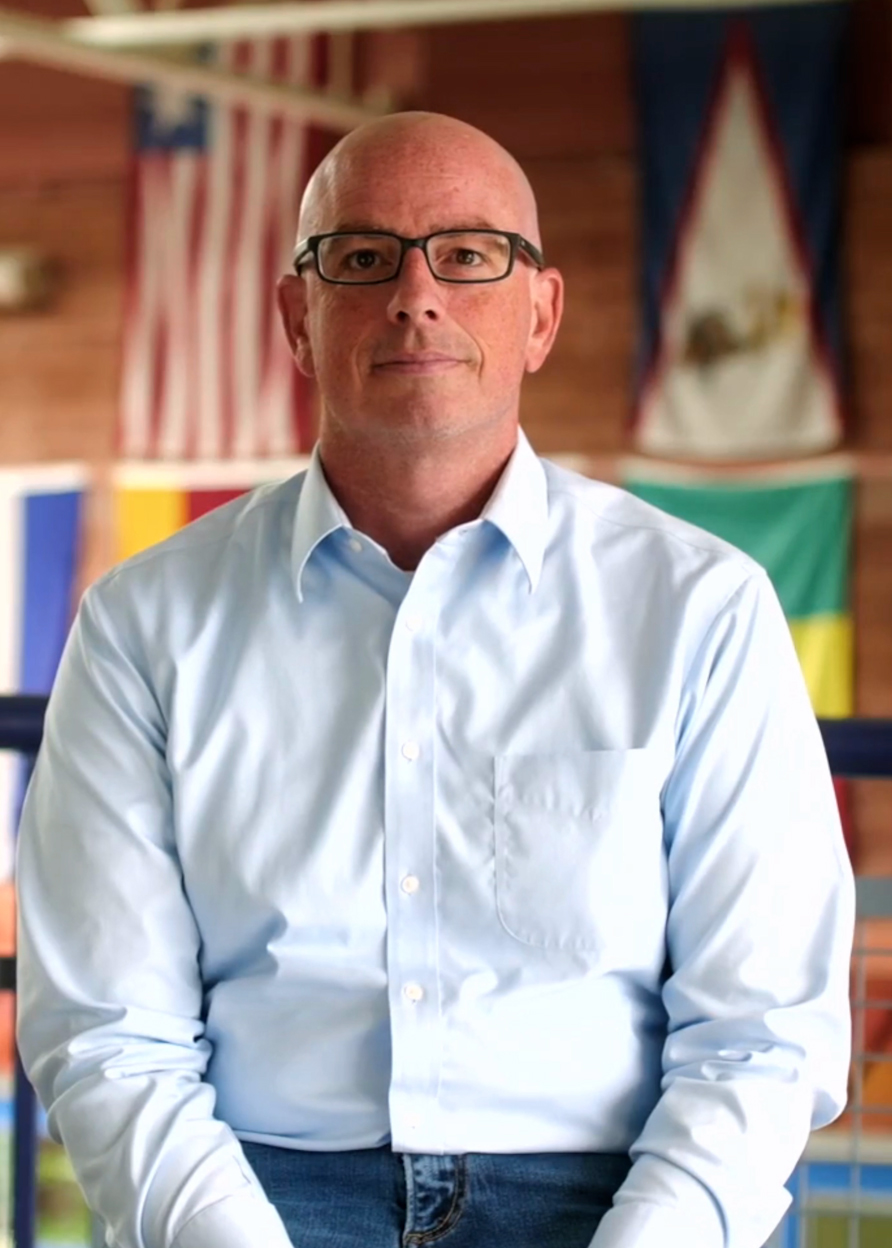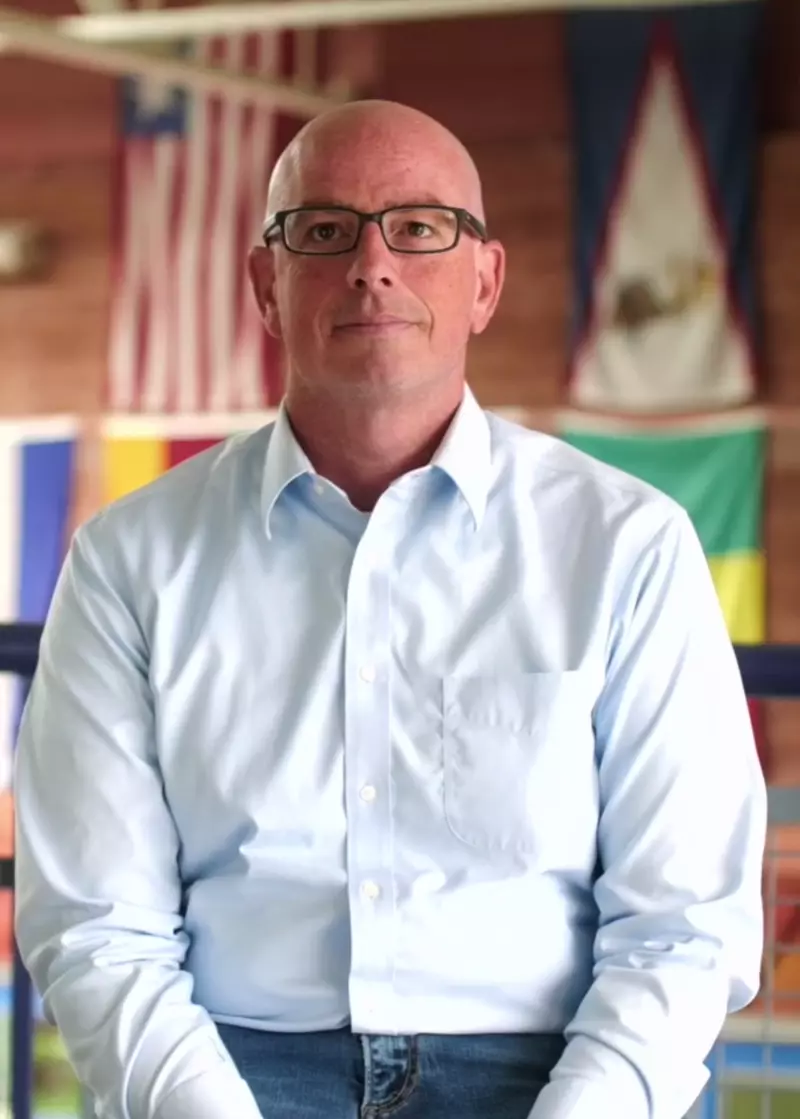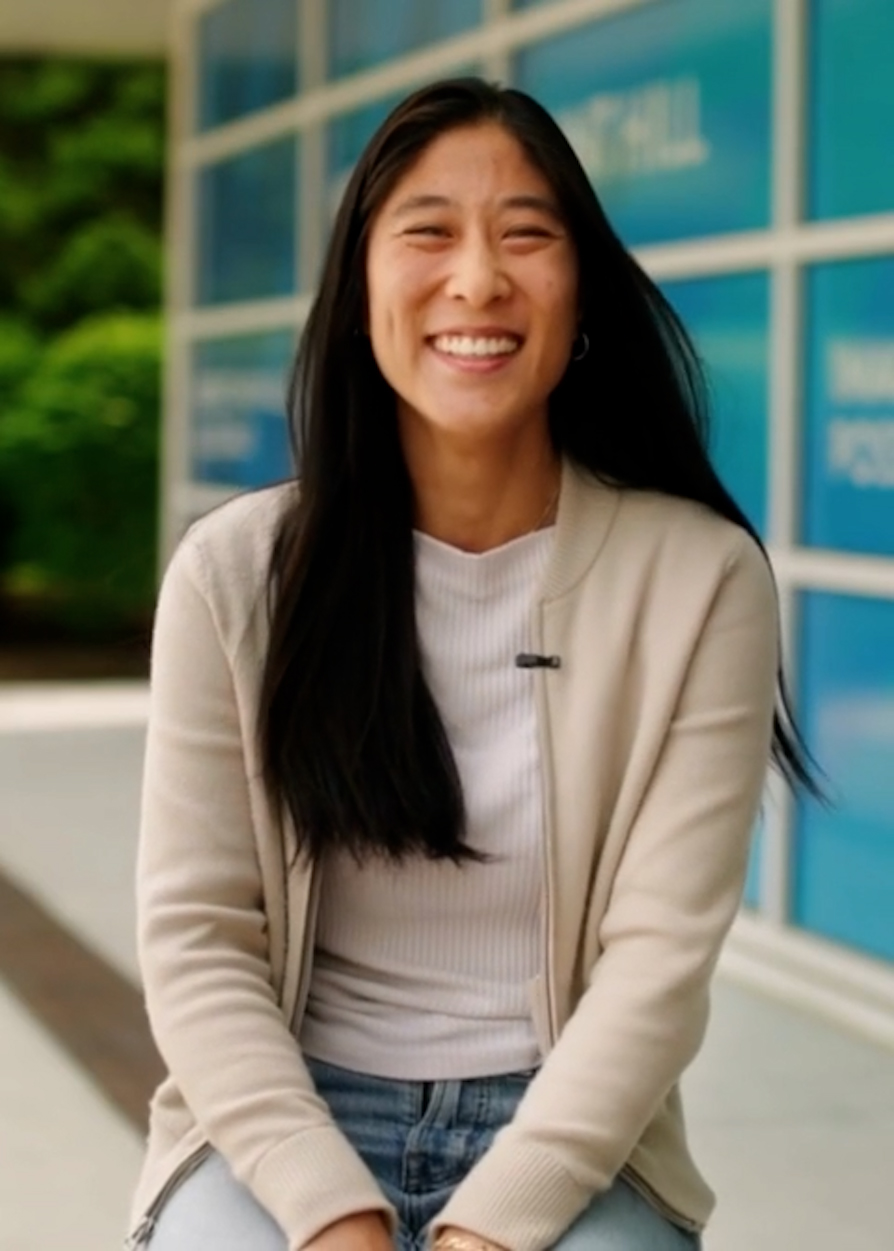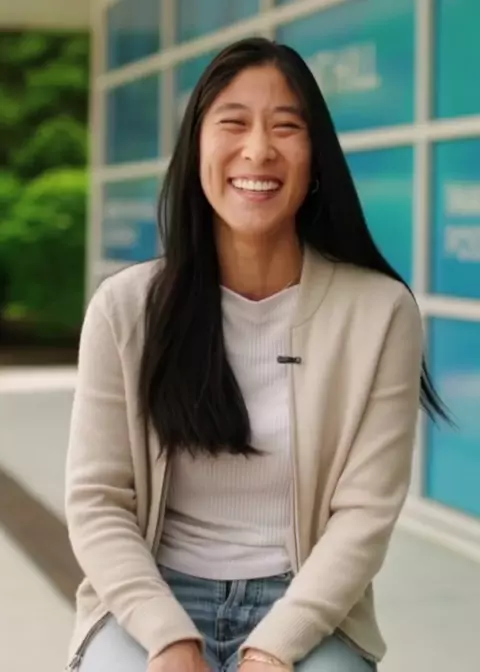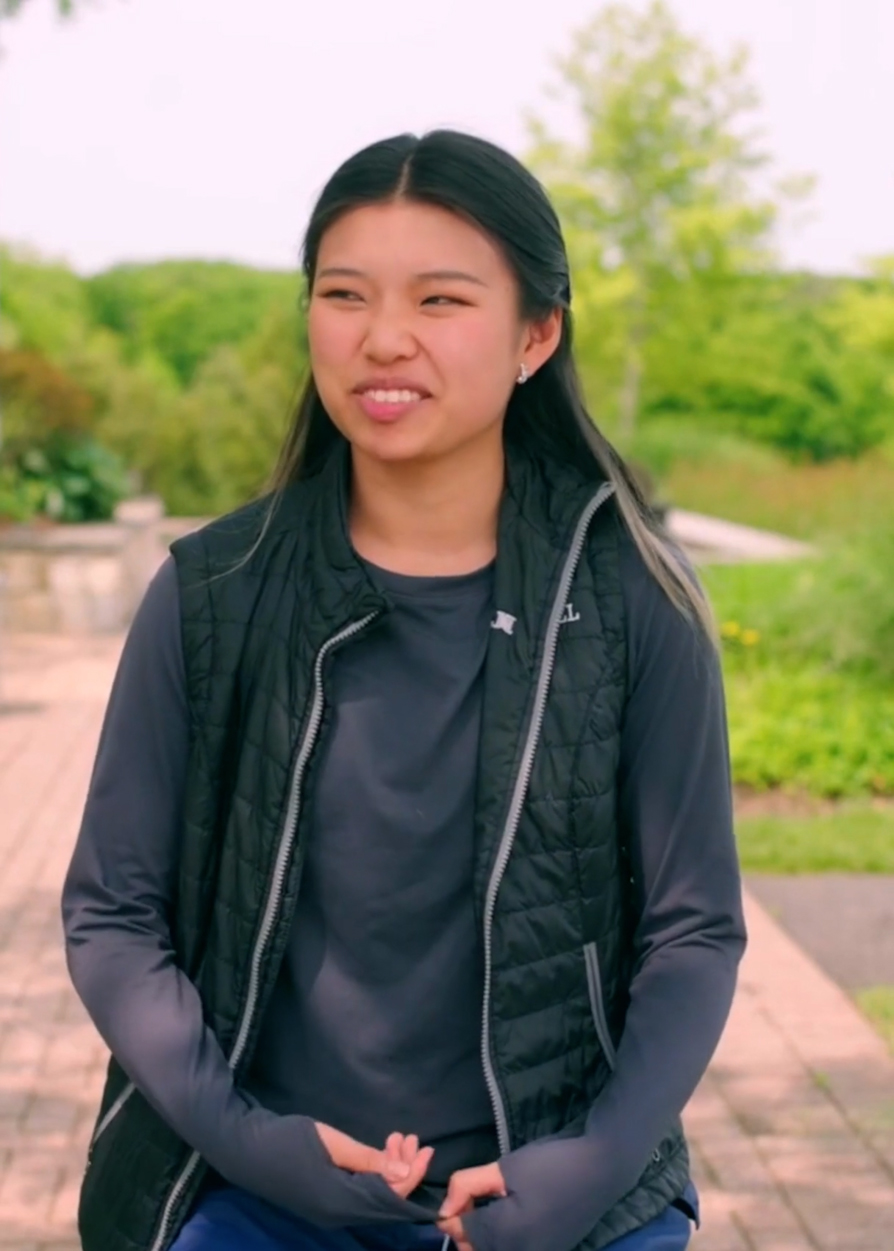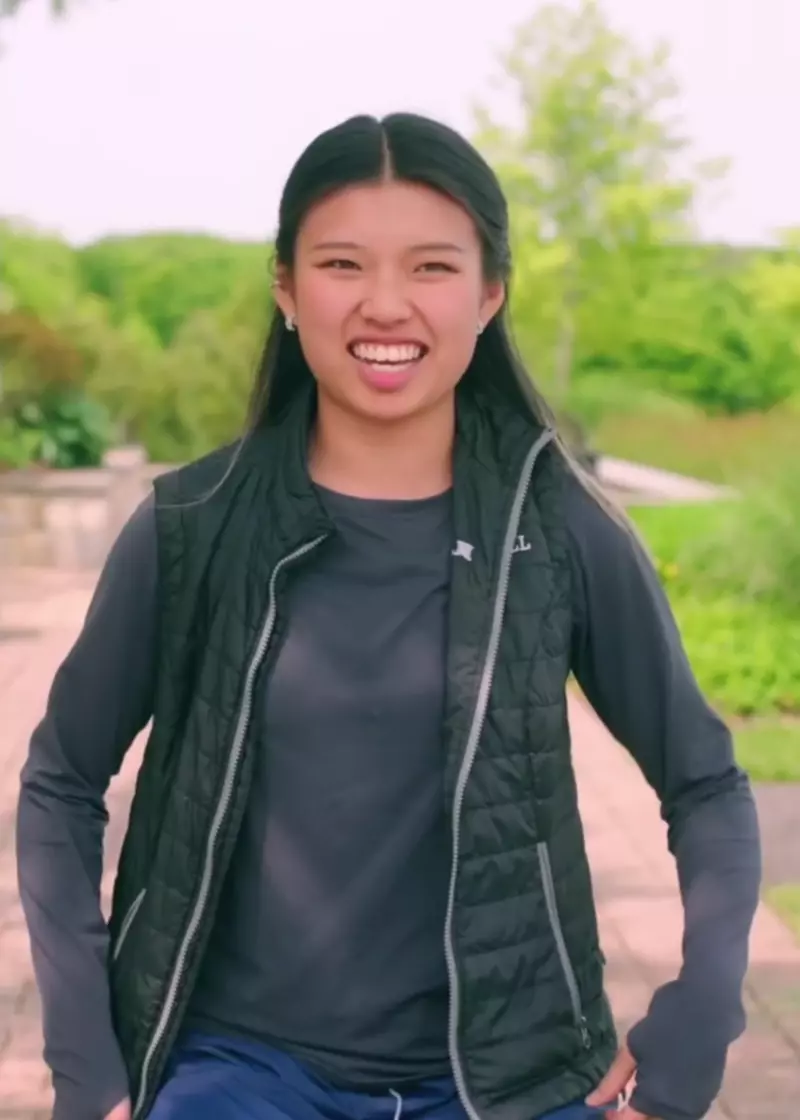Upper School
When students are known, challenged, and supported as they develop from adolescence into adulthood, there is no limit to what they can achieve in college and beyond.
Flint Hill students complete a rigorous program in a supportive, close-knit community, where they are exposed to more freedom and choice, setting the stage for college life. We believe that learning led by curiosity inspires students to develop passion and purpose. Always innovating to set new standards of excellence, we don’t let resources or schedules limit our students’ experience.
SEE OUR PROGRAM IN ACTION
MORE PROGRAM HIGHLIGHTS
The Upper School Advisory program seeks to create a community within a community, matching students with adults who will serve as guides for a student’s journey through the academic, moral, and physical challenges of their Upper School years.
Class Deans are assigned to each of the four grade levels to provide an administrative presence devoted to the needs of each class and individual student. Each Class Dean chairs biweekly grade-level faculty meetings, working with the Upper School counselors and faculty advisors to develop plans for student assistance and support. Class Deans also work with the student leaders for their particular class to develop activities that build community and encourage members of the class to exercise new forms of leadership.
At Flint Hill, we believe providing service to our school and the larger community is one way we fulfill our school’s mission. We are committed to ensuring that all students participate in meaningful service opportunities throughout their four years in Upper School. We ask students to consider service as a continuum, moving from awareness to advocacy to action. While most students equate service with the action stage, it is essential not to overlook the value of first participating in the awareness and advocacy stages. Focusing on these areas first brings forth more meaningful action steps, longer-term partnerships, and ongoing solutions that better alleviate a particular need.
The teacher-student relationship is paramount at Flint Hill. All Upper School teachers offer regular office hours for students to drop in for 1:1 support. Time to attend office hours is built into the daily schedule. Attending office hours can have a big impact on our students' academic success. Aside from fostering a meaningful connection with their teachers, office hours offer students the opportunity to clarify and ask questions about the material, review an exam or assignment, and better understand their teachers' expectations.
This group of self-nominated and peer/faculty-elected representatives is dedicated to maintaining and upholding the standards of academic honor within the student body.
CURRICULUM
With our rigorous academic program and extracurricular opportunities, Flint Hill students can do it all. We inspire our students to reach their greatest potential while maintaining balance and well-being. Our academic program is both challenging and supportive — allowing all students to be successful. We cultivate deep learning and encourage students to pursue all of their interests.
All students must earn a minimum of 20 credits in Upper School courses to qualify for a Flint Hill diploma.
Activity Credit
The Flint Hill Activity Credit is a graduation prerequisite that addresses the physical education and team-building requirements in a student’s experience. We believe that activity outside of the classroom and alongside others within Flint Hill builds community, fosters camaraderie, introduces us to those we may not know, and helps to develop essential skills, habits, and values. Four activity credits must be earned during the Flint Hill Upper School experience.
Activity Credits through Designated Upper School Student Activities
Two of these credits must be earned by participating with a Flint Hill athletic team or non-competitive program. Students may choose to earn these two required credits through athletic participation or through approved participation in certain plays or musicals, the Major Minors musical group, Certamen, Yearbook Staff, Literary Magazine Staff, The View Staff, Robotics Teams, or Cybersecurity after-school activity.
Non-school-sponsored athletic activities may not substitute for any of the four activity credits. While we encourage our students to be involved in healthy physical activity and competition whenever possible, we believe they gain additional benefits and values by participating in Flint Hill programs.
Community Service
Fifteen hours per year (60 hours total), of which five hours must be spent with organizations outside of the Flint Hill community.
Senior Project
The project should be successfully completed during the senior year.
The philosophy of the Fine Arts Department is to encourage the artistic growth of every Upper School student. Flint Hill supports the specialist who is interested in a deep dive into their unique interests in art or the generalist who wants to spread their wings and try new things. The Upper School offers fine arts classes in a variety of disciplines — music, theater, studio arts, digital arts, filmmaking, and photography. Students become well prepared to pursue the fine arts at the college or university level.
Visual Arts
Studio Art
Introduction to Studio Art
Art I
Art II
Art III – Honors
Portfolio Exhibition – Honors
Ceramics
Ceramics I
Ceramics II
Ceramics III
Topics in Ceramics – Honors
AP Studio Art: 3D Design – Ceramics
Digital Arts
Digital Art I
Digital Art II
Graphic Design I
Graphic Design II
Topics in New Media – Honors
Film and Video
Digital Video and Filmmaking
Photography
Digital Photography I
Digital Photography II
Advanced Topics in Photography
Performing Arts
Music
Symphonic Band
Jazz Band
Percussion Ensemble
Concert Choir
Symphonic Choir
Theatre Arts
Introduction to Theatre Through Improvisation
Acting I
Acting II
Acting III
The Science Department’s goal for Upper School students is to teach them that great scientists are compassionate global citizens who properly use the scientific method to make new discoveries and solve societal problems. In the classroom, emphasis is on the process of data collection, interpretation, and argumentation. The Science Department has created a sequence of courses that allows the content and skills to build upon each other, throughout a student’s four years at the Upper School, modeling the real-world process of scientific discovery.
Learn more specifically why students start with physics in 9th grade.
Physics
Foundations of Chemistry
Biochemistry
Environmental Chemistry
Nuclear Chemistry
Physical Chemistry
Advanced Biology – Anatomy and Physiology of Animals
Advanced Biology – Anatomy and Physiology of Plants
Advanced Biology – Cell Biology
Advanced Biology – Conservation Biology
Advanced Biology – Ecology
Advanced Biology – Evolutionary Biology
Advanced Biology – Life’s Origins and Transitions
Advanced Biology – Modern Genetics
AP Biology
AP Chemistry
AP Physics I: Algebra-Based
AP Physics II: Algebra-Based
AP Physics C
AP Environmental Science
Electives
Biotechnology
Discovery of Engineering
Earth and Environmental Sciences
Evolution of the Biosphere
Field Natural History and Ornithology
Forensic Science
Marine Science
Scientific Research
The History and Social Sciences Department prepares students to be knowledgeable and engaged global citizens and fosters self-directed learners who are curious, analytical, and critical thinkers. The goal in the Upper School is to produce problem-solvers, leaders, effective communicators — both oral and written — and ethical citizens who can succeed in a rapidly-changing world. The wide range of curriculum includes dynamic semester electives and AP courses. Students are taught to question and be reflective, listen actively, express ideas clearly, and embody values of respect, honesty, compassion, and responsibility.
History
Contemporary World History I
Contemporary World History I – Honors
Contemporary World History II
Contemporary World History II – Honors
United States History
AP United States History
History Electives
African Studies
Applied Civics
Civil Rights, Human Rights and Civil Liberties
Disruptive Innovation Through Social Media
Greek and Roman History and Civilization
Russian Studies
Middle East Studies
Twentieth Century History United States History Through Popular Music
AP United States Government
Introduction to Economics
Social Sciences
AP Human Geography
AP Macroeconomics
AP Microeconomics
AP Psychology
The Innovation Department prepares Upper School students to be the next generation of changemakers. Classes provide challenges and skills that students seek, enriching their classroom experiences. For the explorer, there are semester-long or full-year courses in robotics, computer science, cybersecurity, and engineering. Students with a discovered passion may dive deeply into cybersecurity and AP and Honors computer science and robotics. The most challenging courses — Advanced Aerial Robotics and Advanced Topics in Programming — provide unparalleled opportunities for students to hone their skills and perform at their highest levels. Innovation students leave Flint Hill equipped to succeed and ready to make a positive impact in the world.
Computer Science I
Cybersecurity: Connected Devices
Cybersecurity: Defense Against the Dark Arts
Cybersecurity: Forensics
Cybersecurity: Shell Basics
AP Computer Science A
AP Computer Science Principles
Advanced Topics in Computer Science
Robotics I
Robotics II
Advanced Aerial Robotics – Honors
Advanced Topics in Computer Science
Discovery of Engineering
Disruptive Innovation Through Social Media
Independent Study
Innovation Incubator
Leadership
Social Entrepreneurship
The Internet: Salvation or Destruction?
Physical Computing
The Upper School Mathematics program provides a broad concept and skills-driven curriculum that invites students to actively explore, discover, and co-create the mathematics they learn each day. The student-centered, teacher-facilitated approach aims to produce flexible and agile learners through the continual development of mathematical practices and habits of mind. The spiraling curriculum of concepts and skills challenges students to make conjectures, see connections, form generalizations, build models, and solve problems that require sustained effort, creative problem-solving strategies, acute spatial awareness, and strong critical-thinking skills. The program emphasizes the beauty and utility of mathematics and the importance of effective collaboration and communication.
Algebra I
Geometry
Geometry – Honors
Algebra II
Accelerated Algebra II
Algebra II/Trigonometry – Honors
Functions, Trigonometry and Statistics
Pre-Calculus
Pre-Calculus – Honors
Calculus
AP Calculus AB
AP Calculus BC
AP Statistics
Multivariable Calculus: Post-AP
Linear Algebra: Post-AP
Electives
Financial Mathematics
Probability and Statistics
The Modern Languages Department is dedicated to promoting the study of languages and cultures and fostering appreciation for diversity. Upper School students are provided with a supportive environment where they can feel comfortable taking risks in language acquisition. Learning French and Spanish is essential for cultural awareness, personal growth, and professional success, providing a competitive advantage in today's diverse and globalized world. The Modern Languages Department uses an active and real-world approach for students to develop language skills and critical-thinking abilities through diverse and interactive activities. Language study is a valuable experience that enhances personal and academic growth as well as future career prospects.
French
French I
French II
French II – Honors
French III
French III – Honors
French IV
AP French Language and Culture
French V: Business French
French V: French Culture Through Film and Current Events
Language and Cultural Study Abroad (subject to availability)
Spanish
Spanish I
Spanish II
Spanish II – Honors
Spanish III
Spanish III – Honors
Spanish IV
Spanish IV – Honors
AP Spanish Language and Culture
Spanish V: Current Events
Spanish V: Latin American and Spanish Film
Language and Cultural Study Abroad (subject to availability)
The English Department offers an engaging and wide array of classes at college preparatory, Honors, and AP levels for Upper School students to continuously develop into better readers, writers, and thinkers. Students in Grades 9 and 10 read a variety of classic literary texts paired with contemporary texts. Students develop analytical essay-writing skills, vocabulary, grammatical knowledge, and research skills, and they have opportunities for creative writing. At the 11th and 12th grade levels, many special topics seminar classes are offered. In addition to coursework, the English Department supports The Rough Draft, an award-winning student literary magazine, as well as The View, an online student newspaper. Students participate in Poetry Out Loud, Visiting Writers Day programs, and creative and expository essay contests.
English
English I – Investigating Forms and Genres
English I – Honors: Investigating Forms and Genres
English II – Exploring Literary Perspectives
English II – Honors: Exploring Literary Perspectives
AP English Language and Composition
AP English Literature and Composition
Junior/Senior Seminars
Banned Books
Ethics in Literature – Honors
Evolution of the American Dream
Film Criticism – Honors
Gothic Literature
The Harlem Renaissance
International Literature
Life According to the Ancient Greeks and Romans
Literature for the Inquiring Mind – Honors
Literature of Social Change – Honors
Literature of War
Women’s Literature
Poetry
Reading and Writing Intensive: Fiction - Honors
Redefining America
Satire: Insult, Derision & Scorn
Science and Literature
Shakespeare – Honors
Short Story
Tomorrow’s Classics
Visual Literacy in the 21st Century
Electives for Non-English Credit
Journalism
Writing the Novel
Writing Poetry and Short Fiction
The mission of the Classics Department for Upper School students is to foster inquiry into the language, literature, art, and history of Ancient Greece and Rome and neighboring areas of the Mediterranean. Inherently interdisciplinary and comparative, the Classics Department strives to offer a rigorous education in the liberal arts, giving students training in the careful analysis of texts, in effective creation of cogent arguments, and in critical thinking. Study of the cultures of the ancient world adds historical depth and complexity to a student’s understanding of language, literature, material culture, history — and the interrelationships among them — and of many issues important to contemporary society, such as cultural interaction and exchange, race and ethnicity, religion and society. The Classics Department also strives to create and engage in extracurricular activities that allow students to challenge themselves and interact with students nationwide.
Latin
Latin I
Latin II
Latin II – Honors
Latin III
Latin III – Honors
Latin IV
Latin IV – Honors
Latin V
Latin AP
Latin Collegiate Seminar: Post-AP
Greek
Ancient Greek I
Ancient Greek II
Electives
Etymology: Roots and Word Origins
Etymology: Language and Vocabulary Development
Greek and Roman History and Civilization
World Mythology



